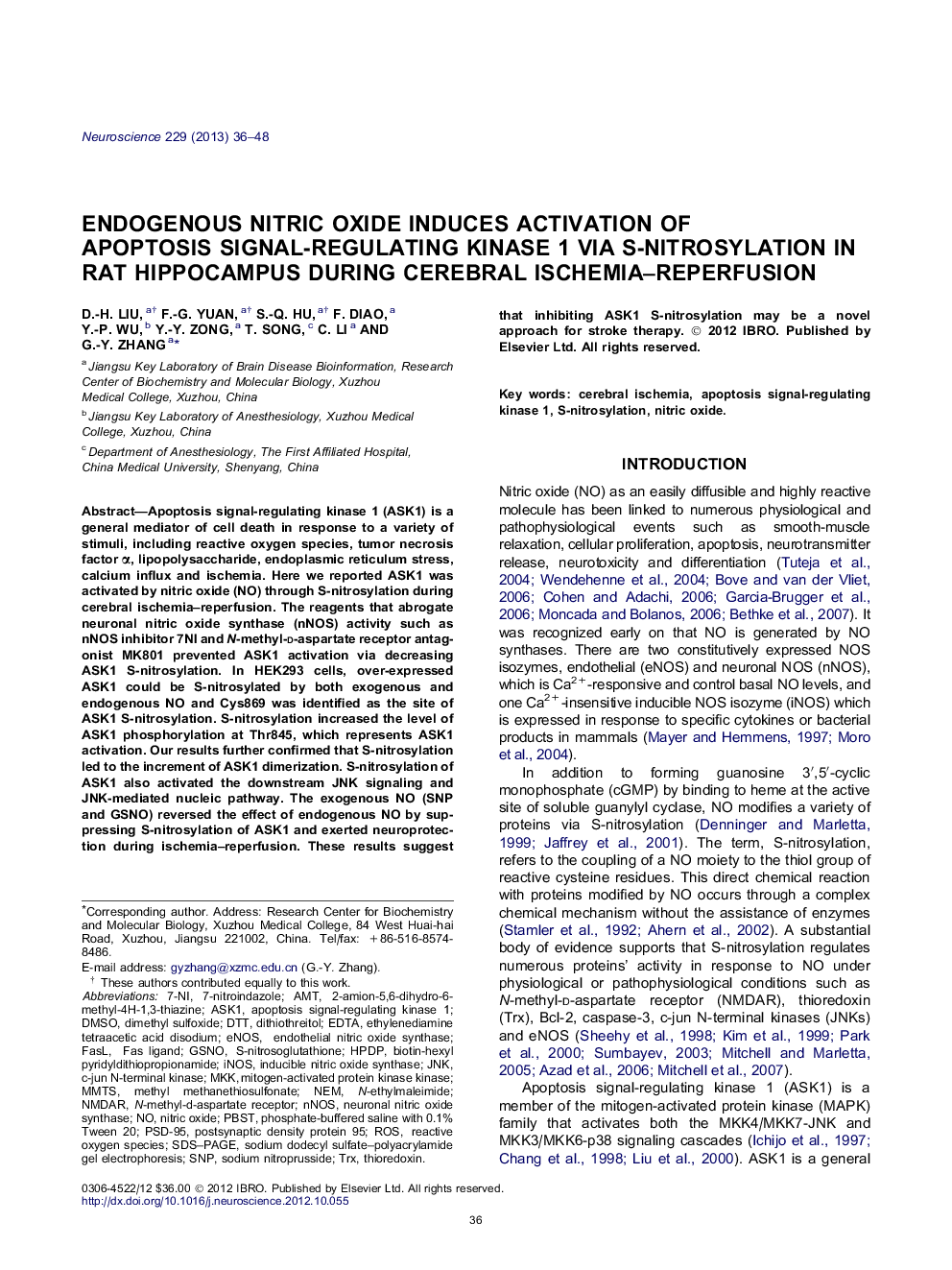| Article ID | Journal | Published Year | Pages | File Type |
|---|---|---|---|---|
| 4338123 | Neuroscience | 2013 | 13 Pages |
Apoptosis signal-regulating kinase 1 (ASK1) is a general mediator of cell death in response to a variety of stimuli, including reactive oxygen species, tumor necrosis factor α, lipopolysaccharide, endoplasmic reticulum stress, calcium influx and ischemia. Here we reported ASK1 was activated by nitric oxide (NO) through S-nitrosylation during cerebral ischemia–reperfusion. The reagents that abrogate neuronal nitric oxide synthase (nNOS) activity such as nNOS inhibitor 7NI and N-methyl-d-aspartate receptor antagonist MK801 prevented ASK1 activation via decreasing ASK1 S-nitrosylation. In HEK293 cells, over-expressed ASK1 could be S-nitrosylated by both exogenous and endogenous NO and Cys869 was identified as the site of ASK1 S-nitrosylation. S-nitrosylation increased the level of ASK1 phosphorylation at Thr845, which represents ASK1 activation. Our results further confirmed that S-nitrosylation led to the increment of ASK1 dimerization. S-nitrosylation of ASK1 also activated the downstream JNK signaling and JNK-mediated nucleic pathway. The exogenous NO (SNP and GSNO) reversed the effect of endogenous NO by suppressing S-nitrosylation of ASK1 and exerted neuroprotection during ischemia–reperfusion. These results suggest that inhibiting ASK1 S-nitrosylation may be a novel approach for stroke therapy.
► ASK1 was activated by S-nitrosylation during cerebral ischemia–reperfusion. ► Cys869 was identified as the site of ASK1 S-nitrosylation. ► S-nitrosylation of ASK1 activated downstream JNK signaling.
